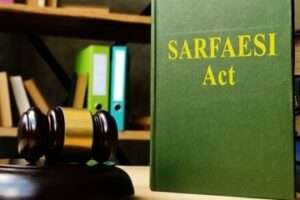Murder Trial – Supreme Court Applies “Sustained Provocation Principle”; Gravity Of “Provocation” Can Be Assessed Based On History Of Abuse
Case: Dauvaram Nirmalkar vs State of Chhattisgarh
Coram: Justices Sanjiv Khanna and Bela M. Trivedi
Case No.: CrA 1124 OF 2022
Court Observation: The question of loss of self-control by grave and sudden provocation is a question of fact. Act of provocation and loss of self-control, must be actual and reasonable. The law attaches great importance to two things when defence of provocation is taken under Exception 1 to Section 300 of the IPC.
First, whether there was an intervening period for the passion to cool and for the accused to regain dominance and control over his mind.
Secondly, the mode of resentment should bear some relationship to the sort of provocation that has been given. The retaliation should be proportionate to the provocation.
The first part lays emphasis on whether the accused acting as a reasonable man had time to reflect and cool down. The offender is presumed to possess the general power of self-control of an ordinary or reasonable man, belonging to the same class of society as the accused, placed in the same situation in which the accused is placed, to temporarily lose the power of self-control.
The second part emphasises that the offender’s reaction to the provocation is to be judged on the basis of whether the provocation was sufficient to bring about a loss of self-control in the fact situation. Here again, the court would have to apply the test of a reasonable person in the circumstances. While examining these questions, we should not be short-sighted, and must take into account the whole of the events, including the events on the day of the fatality, as these are relevant for deciding whether the accused was acting under the cumulative and continuing stress of provocation.
“Last provocation has to be considered in light of the previous provocative acts or words, serious enough to cause the accused to lose his self-control. The cumulative or sustained provocation test would be satisfied when the accused’s retaliation was immediately preceded and precipitated by some sort of provocative conduct, which would satisfy the requirement of sudden or immediate provocation.
Thus, the gravity of the provocation can be assessed by taking into account the history of the abuse and need not be confined to the gravity of the final provocative act in the form of acts, words or gestures. The final wrongdoing, triggering off the accused’s reaction, should be identified to show that there was temporary loss of self-control and the accused had acted without planning and premeditation…
…Exception 1 to Section 300 recognises that when a reasonable person is tormented continuously, he may, at one point of time, erupt and reach a break point whereby losing self-control, going astray and committing the offence. However, sustained provocation principle does not do away with the requirement of immediate or the final provocative act, words or gesture, which should be verifiable. Further, this defence would not be available if there is evidence of reflection or planning as they mirror exercise of calculation and premeditation.
“On the night of the occurrence, the deceased had consumed alcohol and had told the appellant to leave the house and if not, he would kill the appellant. There was sudden loss of self-control on account of a ‘slow burn’ reaction followed by the final and he would kill the appellant. There was sudden loss of self-control on account of a ‘slow burn’ reaction followed by the final and immediate provocation. There was temporary loss of self-control as the appellant had tried to kill himself by holding live electrical wires. Therefore, we hold that the acts of provocation on the basis of which the appellant caused the death of his brother, Dashrath Nirmalkar, were both sudden and grave and that there was loss of self-control.”
“In addition, the appellant would have to pay a fine of Rs. 1,000/- and in default, will undergo simple imprisonment for a period of six months. On payment of fine or default imprisonment, the appellant is directed to be released forthwith, if not required to be detained for any other case”
Previous Posts
Clause Every Effort To Arbitrate; Must Be Referred To Arbitration: Calcutta High Court
Keywords
Sustained Provocation Principle, Gravity Of Provocation




